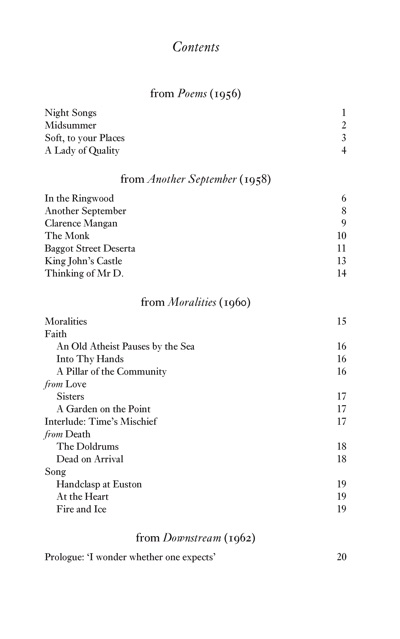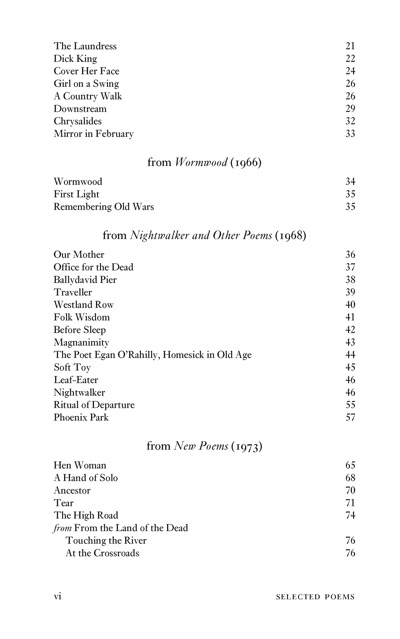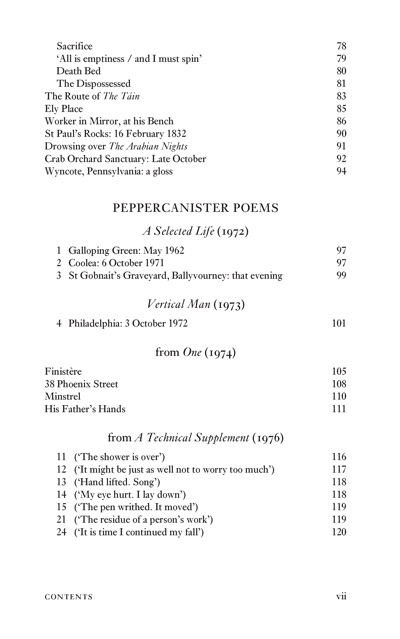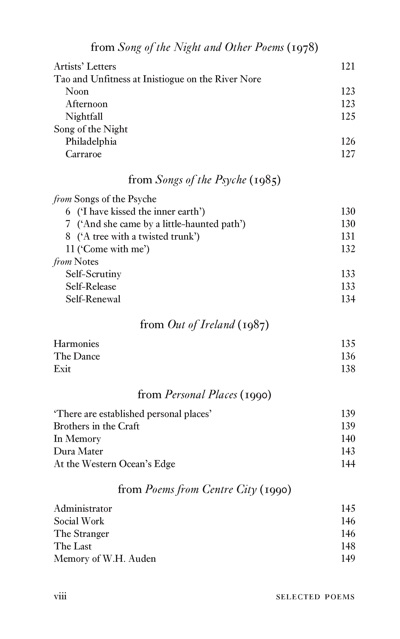1. Last things first. I am not, and have never been, an editor of Yeats’s letters. I have nothing to do with the superb edition for which John Kelly is responsible.
2. It is clear that I misread one of Thomas Kinsella’s sentences in his introduction to The New Oxford Book of Irish Verse, and took him as saying precisely the opposite of what he now clarifies. ‘The past, in Northern Ireland, is not.’ I took that as denying the historical weight and momentousness of the events since 1607 to which I had alluded. He and I are in full agreement, it has happily emerged, on this matter.
3. I don’t know what point Kinsella is making by describing “An Bonnan Bui” as ‘a poem of self-mockery in the mouth of a drunk.’ Even if it were that, I would still find it heart-breaking. But in any case Kinsella was fairer to the poet, Cathal Bui, and the poem when he said, in An Duanaire, that ‘of the handful of poems attributed to him, most are marked by a rare humanity, but none of them can match “An Bonnan Bui” with its finely judged blend of pathos and humour.’ Surely I don’t have to instruct Kinsella, of all poets, in the considerations that break one’s heart.
4. The main point of my remarks about Kinsella’s decision to print no translations (with one exception) but his own was that it suppressed the only provenance the Irish poems had, during a crucially formative period, roughly 1850 to 1930. It is important for readers of modern Anglo-Irish literature to know upon what forms and examples the general sense of the old Irish poetry was based during that period. The character of the translations is what matters, not their adequacy from Kinsella’s point of view, or from mine. My point about Kinsella’s own translations is that even if they were superb in every other respect, they convert a multitude of styles into the common style of his own poems. He makes all the poems sound as if he had written them. This is unsatisfactory in an anthology designed to show the history of Irish poetry from the sixth to the twentieth century; that is, to give some indication of minds, styles, forms, predicaments, and emotions not his own.




